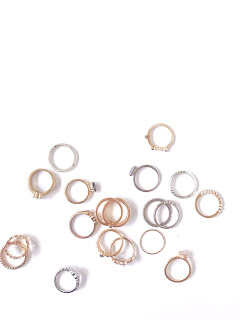The magic, art and science of sourdough bread
Mmmmm ... sourdough bread!
Some people who lose their jobs take up drinking or binge-watch Netflix. Me, I've taken to compulsive baking. I suppose there are worse things. I rarely had time to bake bread in my years running a newsroom, though I made almost all my family's bread when I was a SAHM 20-odd years ago, and I missed it. Now I've gone back to that. In those days, my particular area of specialty was whole-grain breads, following the bible of whole-grain baking, "The Laurel's Kitchen Bread Book." Alas, I loaned that cookbook to a friend some years back and never got it back. (Hint: I need someone to buy me another copy for Christmas.) In the meantime, my current passion is baking sourdough bread.
 |
| This is my first batch of sourdough made with a brand-new starter I made from scratch. Behold its billowy goodness! |
I asked around for a sourdough starter but nobody seemed to have one. So, I made one from scratch. Many starter recipes call for a bit of yeast but to me that was cheating. I wanted to do it the pure and old-fashioned way, using nothing but flour and water. The directions I used came from the King Arthur site http://www.kingarthurflour.com/blog/2012/04/05/creating-your-own-sourdough-starter-the-path-to-great-bread/ and they worked quite well. One caveat is I happened to decide to do this as summer became fall, and it was cold in the house but not cold enough for us to turn on the furnace, so I had to fiddle with a heating pad to keep the starter warm. The process would have been much easier and faster during the summer. However, it's done now, and I got lucky. Making a starter is very hit or miss. This starter is a hit. It raises dough beautifully without the addition of any commercial yeast whatsoever, and the flavor was great from the very first loaf. All who have tried it have loved it. You can't make bread as quickly with sourdough as you can with yeast. You need to feed the starter if you haven't recently done so, and let that work its magic overnight. Then, for best results, make a sponge with the starter and let that rise, then, finally, complete the bread as you usually would. I have found bread made with this starter rises extremely well, getting a big spring when placed into the oven.
I normally proof bread in the oven. I turn on the oven just briefly to warm it and place a pan of boiling water in there to keep plenty of moisture in the air. This does work, but sometimes you are also making a cake or something and the oven is in use. So I'd long planned to come up with some kind of proofing apparatus like commercial bakeries use. I'd fiddled around with homemade versions but I now have an absolutely perfect proofing box, and I can tell you it's absolutely superior to the oven.
I went to my local dollar store and bought a shallow storage box with lid for all of $6. I placed the box over a heating pad, lowered the baking sheet with the dough on it inside, and added a cup of boiling water in the corner to keep the air humid. Add the lid, and voila! Perfect proofing box.
However, I had made just one, so I proofed one loaf in the oven and the other in the proofing box. The results speak for themselves:
I have been baking this bread nearly every day, because my husband and son want it for every meal. My husband really misses the wonderful European breads he gave up when he moved here. This is pretty darned close. As for my son, he doesn't normally go crazy over bread, but for this bread he does.
Over time, this starter will develop a more complex flavor. I hope to keep it alive indefinitely and look forward to seeing what kind of bread it will produce a year from now.
Once I get another job, my baking will have to dramatically drop off, but a mature starter can be parked in the back of the fridge and fed once a week and otherwise ignored. If I'm lucky, I'll land a job with reasonable hours that will allow me to continue baking good bread at least once a week. Work-life balance is a goal I'm working toward.
For now, nothing is so soothing as filling my empty days by cooking for people. Most of the good stuff is bestowed upon my family, but I've also gone to a friend's kitchen and helped her prepare party treats, and have gone to another friend's house to teach her how to make a few dishes from scratch, including chicken and noodles and the kind of ham and bean soup her mother made.
 |
| Jessica rolls out the egg noodle dough. I'm pretty sure this was her first time using a rolling pin, but she did great and the noodles were really delicious. |
Sourdough bread is more challenging than simply cracking open a jar of yeast and raising your bread that way. Just making regular bread is plenty challenging. There are so many variables: Getting the amount of moisture right, timing the rises, the choice of flours, the shaping of the dough, the temperature(s) at which you bake, the type of oven used, whether you use a baking stone, whether you hydrate the loaves and how, how long you bake the loaves, and how you store them when they are cool. Add in the unpredictability of sourdough and the variables are infinite. There is science to sourdough, and it's helpful to understand it. There is art to sourdough, and you need to take the time to learn it. But there is magic to sourdough, too, and regardless of you doing everything exactly as you did last time, the results can still be different. There are times I take the first bite from a fresh loaf and it is so good I wish I could give a slice to every single person I know. There are other times when I take that first bite, and the bread is rather "meh." Good, but nothing to shout about. I have found that the really superior bread is sure to appear when nobody but my husband and I are around to appreciate it, and the just OK bread is sure to be what I produce when I have a bunch of people coming for dinner. I suspect it's possible to offend the Bread Gods for bragging about your bread too much, and being punished with a pedestrian loaf just when you would like to show off your superior bread skills to a crowd. However, here I am, tempting fate by stating that the bread I've made with this starter is really quite special. Thus, the bowl of bread rising downstairs as I write this may or may not be as amazing as I hope.
If you have time and interest, delve into sourdough. It's one delicious hobby. Don't forget I do teach classes in my friend's Moss Avenue Peoria kitchen, or in your kitchen. Find me on Facebook: Teheux to You Cooking Classes.




Comments
Post a Comment